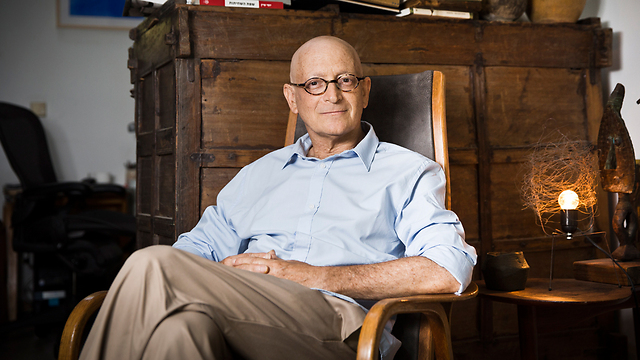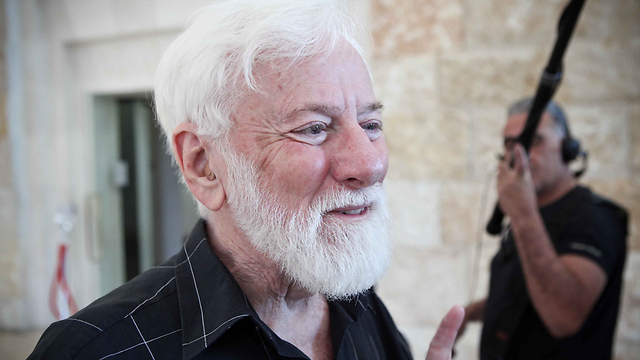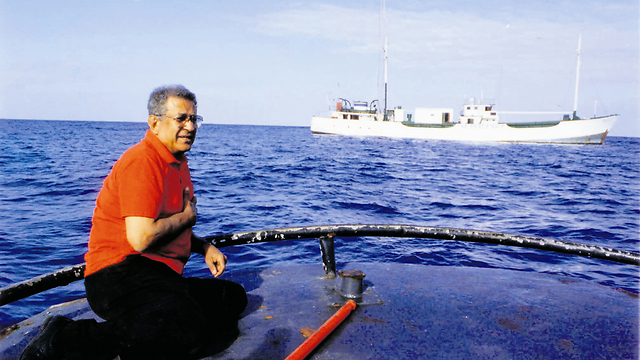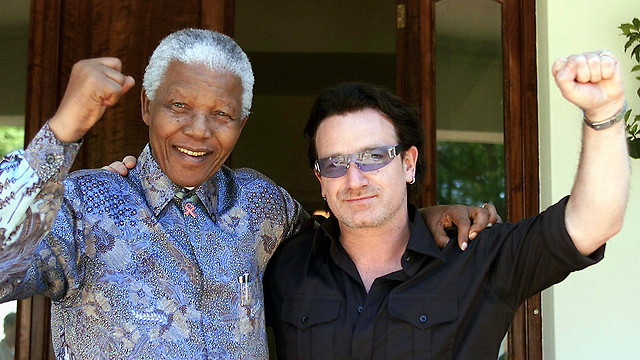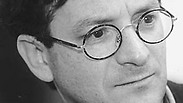
Israel's undercover peacemakers
Behind the scenes of many peace efforts are 'civil peacemakers,' private individuals and trailblazers who create the first channels of communications and the path to a future peace accord - without an official role, diplomatic resources or authority.
On November 30, 1992, Dr. Yair Hirschfeld and Dr. Ron Pundak, two Israeli scholars, were guests at the home of Hanan Ashrawi, then the spokesperson of the Palestinian delegation to the Washington talks.
The Madrid Conference negotiations were taking place in Washington at the time, but it soon became clear that these talks were futile, even after the rise of prime minister Itzhak Rabin to power.
Meanwhile, Hirschfeld and Pundak were holding many meetings with Palestinian officials in an attempt to resolve the dead end the talks had reached.
During the meeting at her home, Ashrawi offered to use Hirschfeld's planned trip to London to organized a meeting with senior PLO official Ahmed Karia, who was also staying at the British capital.
Officially, Israel at the time was refusing to talk to the PLO and the Knesset has yet to revoke the law that forbade conducting such talks.
In his meeting with Karia, Hirschfeld stressed that he was a private scholar who was not representing the Israeli government and, indeed, no official Israeli source knew about such a meeting.
Following the meeting, Hirschfeld updated Yossi Beilin - then the deputy foreign minister - and Norwegian representatives about the meeting, and shortly thereafter an unofficial channel of talks was opened in Oslo, in which Hirschfeld, Pundak and a PLO delegation headed by Karia participated.
This channel - that started as an unofficial, academic meeting channel between two private citizens and PLO representatives - had evolved, in mere months, into an official negotiations channel between Israel and PLO after Rabin and Shimon Peres supported and approved the move and added two official Israeli representatives to the talks in Oslo. Eventually, as is well known, that channel led to an historical breakthrough.
Oslo pioneers
On the Oslo negotiations channel, Sari Nusseibeh, a Palestinian philosophy professor and intellectual, wrote that "it was conducted by two professors whose heads were in the clouds, behind the backs of professional statesmen, that managed to make, within a short period of time, more progress than what the official negotiators made in over a year and a half."
Hirschfeld and Pundak's Oslo initiative, backed and supported by Beilin, was only a part of the long and varied career of private peace activity in which Pundak was involved over the years.
After the Oslo accords Hirschfeld and Pundak tried to recreate their success and led, once again with Beilin's backing, another negotiations channel with representatives of Mahmoud Abbas. This time, the goal was to formulate a principle outline for a final status agreement. The talks led to an understanding document dubbed as the "Beilin-Abbas agreement" which was completed in a tragic coincidence just a few days before Rabin's assassination in 1995.
Pundak was also one of the main figures behind the "Geneva Initiative," which offered a detailed model to an Israeli-Palestinian peace treaty. He was also a part of AIX group - an Israeli-Palestinian group of researchers that was dealing with the financial aspects of the permanent agreement, and maintained a close and unique relationship with the Palestinian leadership. Former prime minister Ehud Olmert later used Pundak's communication channels with Abbas during the Annapolis Conference negotiations.
Trail blazing
Ron Pundak's activity is a part of a broad historical and international phenomenon called "Civil Peacemakers" - private citizens who don't have any official role, who initiate unofficial communication channels with representative of the opposite side of the conflict to pave the way to conflict resolution.
Examples of such mediation attempts can be found throughout history in various conflict areas around the world.
The importance and uniqueness of the peacemakers especially lie in the pre-negotiation stage in which the sides are engaged in a violent conflict, do not have any official diplomatic relations and usually also do not recognize the existence of one another.
In such conditions the peacemakers are akin to collateral blood vessels in the human body that provide an alternative "lifebuoy" in the case of the clogging of the main arteries. Among the leading examples are father Alec Reid, who helped facilitate the Northern Ireland peace process, Dr. Alex Boraine who played a role in bringing an end to the apartheid regime in South Africa and many others.
Theoretical literature in the field uses the term "track two diplomacy," referring meetings for dialogue between civilians from both sides of the conflict, that constitute a complementary move to official contacts between the two leaderships.
Pundak's peacemaking activity is a part of a long historic line of Israeli civilian peacemakers who worked to resolve Israeli-Arab conflict from its early days. A timeline can drawn on the issue, starting with Judah Leib Magnes, the first chancellor of the Hebrew University, who initiated contacts with Arab officials during the British Mandate; Uri Avneri, editor of HaOlam HaZeh, an Israeli news magazine, who created a channel of communication with the PLO from the mid-70s; Abie Nathan, who promoted various private peace initiatives such as the "Voice of Peace" radio station; and Rabbi Menachem Froman, who conducted meetings with Hamas leaders; finally, peace activist Gershon Baskin, who formed a communication channel with the Hamas leadership which aided in the release of kidnapped IDF soldier Gilad Shalit in 2011.
Eroding the foreign ministries' monopoly
The peacemakers phenomenon is a part of an ever-growing international trend of "civil diplomacy" and "unofficial diplomacy" that goes beyond the issue of conflict resolution, and focuses mostly on various issues on the international stage like human rights, environmental protection and arms control. These processes of change started in the second of half of the 20th century and increased after the end of the Cold War. These changes introduced new players - non-governmental and unofficial - to the diplomatic stage and eroded the monopoly of foreign ministries.Processes like the information and communication revolutions, global democratization, the blurring of the border between domestic policies and foreign policies and the expansions of issues on the diplomatic agenda - all led to the development of the trend of civil and unofficial diplomacy.
Celebrities also jumped on that bandwagon. A good example to that is U2 frontman Bono's activist work to wipe out the debts of African countries.
It is a well known fact that at the end of every war, the battle for the conflict's historiography: who won? Who fired the first shot? Who deserves a medal and who committed war crimes?
But those who deal with conflict resolution know that even in peace processes there are great historiographical struggles, something that becomes evident when looking at different instances of peace accords signed throughout history.
Even after the Oslo channel there were signs of a struggle of that nature, and following the signing of the accords there was an attempt to push Hirschfeld and Pundak's roles aside - the two were not invited to the signing ceremony in Washington and in Peres's book they were referred to as "Israel's unofficial representatives" without even having their names mentioned.
Despite that it is safe to say that if and when an Israeli-Palestinian peace accord is signed, the leaders signing the agreement and the negotiators that would aid in its formulation will receive a place of honor in the "peace pantheon" and in the history books. But the place and roles of the trailblazers who paved - without an official role, without diplomatic resources, and without authority - the first channels of communications and the path to a future accord, will not be forgotten.
Among them, a place of honor will be kept for Ron Pundak.
Lior Lehrs is a doctoral student in international relations at the Hebrew University in Jerusalem, who researches the phenomenon of civil peacemakers. He is a researcher at the Jerusalem Institute for Israel Studies, dealing with political and diplomatic issues concerning Jerusalem and the Israeli-Palestinian conflict and peace negotiations.










